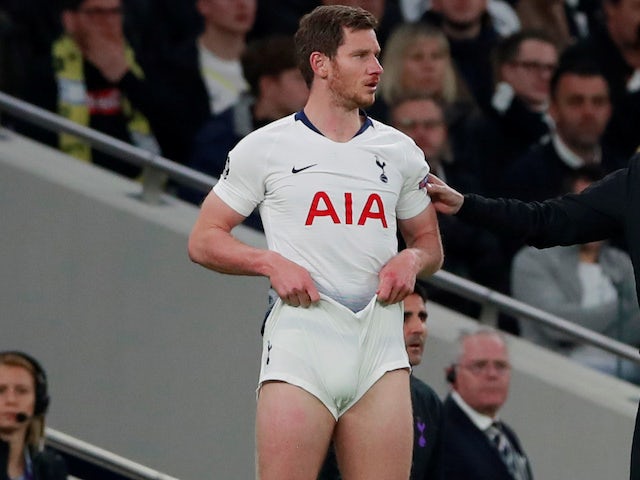Concussion substitutes could be trialled at this summer's Olympic Games, according to FIFA president Gianni Infantino.
Football's handling of head injuries is set to be looked at by the game's law-making body the International Football Association Board (IFAB) in Belfast on Saturday.
Infantino agrees in principle with the idea of concussion substitutes – but believes these should be permanent if a concussion is diagnosed or suspected, not temporary.
And he believes the Games in Tokyo would be an ideal testing ground.

"This is a subject that needs to be discussed more and trialled as well," he said on Friday as he arrived in Northern Ireland.
"Personally I believe more in permanent (substitutes) than temporary. That's my personal view. Maybe it's important there are trials before next season.
"We have the Olympic Games for example where we could, as FIFA, trial something like that and see what happens."
World players' union FIFPRO favours the introduction of a 10-minute assessment period for players suspected of having concussion, arguing that three minutes is simply not enough time to do it properly.
Its chief medical officer Dr Vincent Gouttebarge, who was part of the expert group whose advice has been passed on to the IFAB decision-makers, favours a temporary substitute coming on during the assessment period, and staying on if concussion is diagnosed or suspected.
However, he is "pessimistic" about his favoured approach being adopted because of a lack of consensus among the group, with some fearing the temporary substitution system was open to abuse.
He told the PA news agency that football was "making a fool of itself" over its response to concussion, in comparison to other contact sports.
But Infantino said it was important that the appropriate time was taken on such a serious matter.
"As in everything you need to take decisions when you are comfortable about taking them," he said.
"We are responsible people and we don't have to take decisions based on just a feeling. We need to do it seriously, professionally, looking at data. At the same time, we can trial and see what the consequences are.
"If you can take one (player) out and the team can bring somebody else in, I think that makes sense. We should trial that and see what the consequences are, intended or unintended, but we need to protect players."

Gouttebarge said it was essential that doctors were given more time to assess players, and believes it is "ridiculous" to suggest a concussion could be faked.
"These kinds of thoughts were disclosed (in the expert group). To fake an injury is difficult, to fake a concussion is not only difficult, it's a ridiculous assumption that people make," he told PA.
"We all know players dive in order to get a penalty, but faking a concussion? No. I think it's another level and another dimension.
"If you are afraid of that, IFAB might be empowered to have a pilot scheme in a particular country, and then you evaluate in that country whether a coach or player misused this particular rule or not.
"But just to base an important decision concerning the health of a player only on an assumption like that, I feel it's ridiculous.
"Health and safety should be priority number one. Three minutes (to assess a player) is not enough.
"We are on the move with the concussion dossier, but we are not moving very fast. We are very conservative in football, and I would say in comparison to other contact sports where concussion is an issue, we make a fool of ourselves when it comes to our concussion approach again and again."








